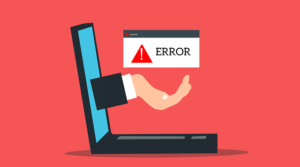
Table of Contents
In the vast expanse of the internet, every interaction leaves a trace. Your IP address, a unique numerical identifier assigned to your device, acts as a digital fingerprint, revealing your approximate location and online activity. While this information plays a crucial role in routing data and maintaining network security, the concept of IP tracking raises concerns about privacy and ethical use. This article delves into the world of IP tracking tools, exploring their functions, limitations, and the legal and ethical considerations surrounding their use.
What Do IP Tracking Tools Do?
At their core, IP tracking tools offer insights into the geographic origin and other details associated with an IP address. These tools vary in complexity, ranging from simple online lookups to advanced solutions employed by law enforcement and cybersecurity professionals. Here’s a breakdown of their functionalities:
Basic IP Lookups: Free online tools provide basic information like the city, state, and country associated with an IP address. However, the accuracy of these details, particularly city-level precision, can be limited.
Reverse IP Lookup: This functionality reveals all websites hosted on the same server as the entered IP address, offering insights into potential link building strategies or identifying suspicious activity.
IP Geolocation: More advanced tools use geolocation databases to pinpoint the location of an IP address with increased accuracy, often incorporating time zone and internet service provider (ISP) information.
Packet Capture and Analysis: Network administrators and security professionals utilize software for capturing and analyzing network traffic, which can include IP addresses associated with specific devices or activities.
Beyond Location: What Else Can Be Tracked?
While location is the primary focus of most IP tracking tools, certain advanced solutions delve deeper, potentially revealing:
- Browser and OS details: The type of browser and operating system used can be inferred from data packets sent by the device.
- Browsing history and activity: In specific scenarios, law enforcement agencies with proper legal authorization might obtain browsing history associated with an IP address.
- Personal information: With additional information gathering techniques, IP addresses can be linked to individuals, raising privacy concerns.
Ethical and Legal Considerations
The power of IP tracking tools comes with significant ethical and legal considerations. Here are some crucial points to remember:
- Privacy concerns: Unwarranted and unauthorized IP tracking can constitute a privacy violation, especially when personal information is revealed.
- Legality: The legality of IP tracking depends on the context and applicable laws. Law enforcement agencies require warrants for accessing certain data, while businesses must adhere to data privacy regulations like GDPR.
- Ethical use: Using IP tracking tools for malicious purposes, such as harassment or stalking, is unethical and illegal.
Beyond Black and White: Understanding the Nuances
While the potential misuse of IP tracking tools raises concerns, they also serve legitimate purposes, including:
- Combating cybercrime: Law enforcement agencies can utilize IP tracking to investigate online threats and identify perpetrators.
- Network security: Organizations can track IP addresses to detect suspicious activity and prevent unauthorized access attempts.
- Website analytics: Businesses can gather insights into their audience’s location and demographics for marketing strategies.
Protecting Yourself: Tips for Responsible Online Activity
Given the potential privacy implications, understanding how to protect yourself online is crucial. Here are some tips:
- Use a VPN: Virtual Private Networks mask your IP address, making it more difficult to track your location.
- Be mindful of online activity: Avoid sharing personal information on public networks or websites with questionable privacy practices.
- Keep software updated: Regularly update your operating system, browser, and security software to patch vulnerabilities that could be exploited for tracking.
The Future of IP Tracking
As technology advances, IP tracking tools will likely become more sophisticated. However, the need to balance innovation with individual privacy rights will remain paramount. Open discussions and regulations are crucial to ensure responsible use of these powerful tools, protecting individuals’ online privacy without hindering legitimate applications.
Popular IP Tracking Tool Providers
In the realm of online investigations and network security, IP tracking tools reign supreme. These digital bloodhounds sniff out the geographical location and other details associated with an IP address, offering valuable insights for various purposes. But with a plethora of providers vying for your attention, choosing the right tool can be a daunting task. Fear not, for this guide delves into the top players in the IP tracking game, equipping you with the knowledge to make an informed decision.
1. MaxMind: A Titan in Geolocation Intelligence
- URL: https://www.maxmind.com/
- Reviews:
- “MaxMind’s GeoIP2 database is the industry standard for accurate and reliable IP geolocation data. It’s a must-have for businesses that need to understand their global audience and comply with data privacy regulations.” – G2
- “The data is super accurate and the pricing is reasonable. We use it for fraud prevention and website analytics, and it has been very helpful.” – TrustRadius
Key Features:
- Granular location data, pinpointing down to city and postal code level
- Real-time IP intelligence for dynamic tracking
- Extensive database covering billions of IP addresses
- Customizable solutions for various industry needs
2. IP2Location: A Comprehensive Suite for All Things IP
- URL: https://www.ip2location.com/
- Reviews:
- “IP2Location offers a wide range of tools and data at competitive prices. Their API is easy to use and integrate, and their customer support is excellent.” – Capterra
- “I’ve been using IP2Location for years for website analytics and security purposes. It’s a reliable and affordable solution that meets all my needs.” – Software Advice
Key Features:
- Extensive IP geolocation database with historical data
- Risk assessment tools for fraud prevention
- Domain and email tracking capabilities
- Customizable reports and data visualizations
3. Spyse: Unveiling the Hidden Depths of the Web
- URL: https://spyse-dev.readme.io/
- Reviews:
- “Spyse is a powerful tool for competitive intelligence and website analysis. It provides deep insights into your competitors’ traffic sources and audience demographics.” – G2
- “This tool has been invaluable for understanding our target audience and identifying new marketing opportunities.” – TrustRadius
Key Features:
- Comprehensive website traffic analysis
- Competitor intelligence tools
- IP geolocation with historical data
- Lead generation and prospecting capabilities
4. Similarweb: A Multifaceted Approach to Digital Intelligence
- URL: https://www.similarweb.com/
- Reviews:
- “Similarweb is an all-in-one platform for digital marketing insights. It provides a wealth of data on website traffic, audience demographics, and competitor analysis.” – G2
- “This tool has helped us improve our website traffic, SEO ranking, and overall digital marketing strategy.” – Capterra
Key Features:
- Website traffic analysis and ranking intelligence
- Global market research and industry trends
- Audience insights and demographics
- IP geolocation with historical data
5. GeoLite2 by MaxMind: The Free and Open-Source Option
- Reviews:
- “GeoLite2 is a great free option for basic IP geolocation needs. It’s easy to use and integrate, and the data is reliable enough for most non-critical applications.” – GitHub
- “This is a valuable resource for developers and hobbyists who need basic IP geolocation functionality without breaking the bank.” – SourceForge
Key Features:
- Free and open-source IP geolocation database
- Available in various formats for easy integration
- Basic location data, including city and country
- Regularly updated with new data
6. WhatIsMyIPAddress.com: This is a free and easy-to-use tool that provides basic information about an IP address, such as its location, ISP, and organization. It also offers a paid service with more advanced features, such as reverse IP lookup and domain name history.
7. Scamadviser: This is a free tool that helps you to identify fraudulent websites. It uses a variety of factors, including the IP address, to assess the risk of a website.
8. FreeGeoIP: This is a free and open-source IP geolocation database that is popular for personal use. It provides basic location data for IP addresses, including city, state, and country.
FreeGeoIP is a great free option for personal use. It is not as accurate as MaxMind GeoIP2, but it is still a good choice for basic needs.
9. DB-IP: This is a free and open-source IP geolocation database that is popular for personal use. It provides basic location data for IP addresses, including city, state, and country. DB-IP is a good free option that is less accurate than MaxMind GeoIP2, but it is still a good choice for basic needs.
It is important to note that IP tracking tools can only provide approximate location information. The accuracy of the information can vary depending on the tool and the IP address being tracked. Additionally, it is important to use IP tracking tools responsibly and ethically.
Here are some additional tips for using IP tracking tools:
- Only use IP tracking tools for legitimate purposes.
- Do not use IP tracking tools to stalk or harass others.
- Be aware of the limitations of IP tracking tools.
- Do not share personal information with IP tracking tools.
Choosing the Right Tool: Consider Your Needs
With an array of options available, selecting the ideal IP tracking tool hinges on your specific requirements. Consider factors like:
- Accuracy and granularity of location data: Do you need city-level precision or just a general idea of the country?
- Features and functionalities: What specific features are essential for your use case (e.g., historical data, risk assessment)?
- Budget: Free options exist, but premium tools often offer more advanced features and data quality.
- Ease of use: How comfortable are you with integrating and using the tool?
Latest FAQs on IP Tracking Tools
1. Are IP tracking tools legal?
The legality of IP tracking depends on the context and applicable laws. Law enforcement agencies typically require warrants for accessing certain data, while businesses must adhere to data privacy regulations like GDPR. Using them for malicious purposes like harassment is illegal.
2. Can IP tracking tools reveal my exact location?
Basic tools offer city-level accuracy, while advanced ones can pinpoint down to postal code or even street level. However, this accuracy isn’t guaranteed, and IP addresses can sometimes be shared by multiple users.
3. How can I protect myself from IP tracking?
Using a VPN masks your IP address, being mindful of online activity limits data collection, and keeping software updated patches vulnerabilities. Remember, complete anonymity online is challenging.
4. What are the ethical considerations of using IP tracking tools?
Respecting privacy and using the tools for legitimate purposes are crucial. Avoid using them for malicious activities or violating someone’s privacy without their consent.
5. What’s the future of IP tracking tools?
As technology advances, these tools will likely become more sophisticated. Open discussions and regulations are essential to ensure their responsible use, balancing innovation with individual privacy rights.
6. Are there free IP tracking tools available?
Yes, free options like GeoLite2 by MaxMind exist, but they offer basic features and limited accuracy. Premium tools often provide more advanced functionalities and higher data quality.
7. What are some common use cases for IP tracking tools?
Law enforcement utilizes them for investigations, businesses use them for website analytics and security, and marketing teams leverage them for competitor intelligence and audience insights.
8. How do I choose the right IP tracking tool for my needs?
Consider your budget, desired features (e.g., historical data, risk assessment), required accuracy level, and ease of use before making a decision.
9. Are IP tracking tools effective for catching criminals?
They can be a valuable tool for investigations, but IP addresses alone may not be conclusive evidence. Law enforcement typically combines them with other investigative techniques.
10. Can I track someone’s IP address if I know their username?
No, usernames typically don’t reveal IP addresses directly. In specific cases, law enforcement or website administrators might have access to this information, but unauthorized methods are unethical and often illegal.
Conclusion: Knowledge is Power in the Digital Age
Understanding IP tracking tools empowers you to make informed decisions about your online activity and privacy. By weighing the benefits and risks, employing responsible practices, and staying informed about evolving regulations, you can navigate the digital world with greater confidence and control. Remember, knowledge is power, and understanding the tools that track you is the first step to protecting your online privacy.
You can also read about Latest Malware and Firmware Threats.




